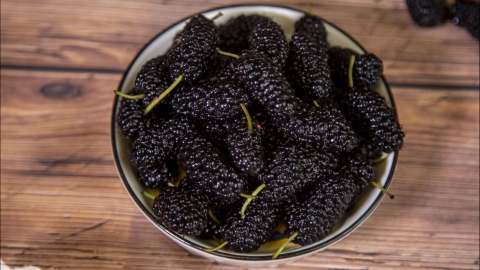Can mulberries treat dysmenorrhea?
Mulberries can alleviate dysmenorrhea to some extent, but they cannot completely cure it. If there are any concerns, it is recommended to seek medical advice in advance. The detailed explanation is as follows:

Mulberries contain nutrients such as vitamins, amino acids, and trace elements, which help improve blood circulation and relieve muscle tension, thereby reducing symptoms of dysmenorrhea. Particularly, the anthocyanins in mulberries have significant anti-inflammatory effects, which can reduce inflammatory responses and pain sensations, helping to prevent and treat conditions such as endometritis, menstrual disorders, and dysmenorrhea.
However, mulberries alone cannot treat dysmenorrhea. Dysmenorrhea may be related to multiple factors, such as cold exposure, endometritis, and endometriosis. If the symptoms of dysmenorrhea are severe or caused by underlying diseases, simply consuming mulberries will not provide a cure. In such cases, patients need to undergo targeted treatment under the guidance of a doctor.
Women experiencing dysmenorrhea should consume mulberries in moderation to avoid gastrointestinal discomfort caused by excessive consumption. Additionally, if dysmenorrhea symptoms persist or worsen, timely medical consultation is necessary.






